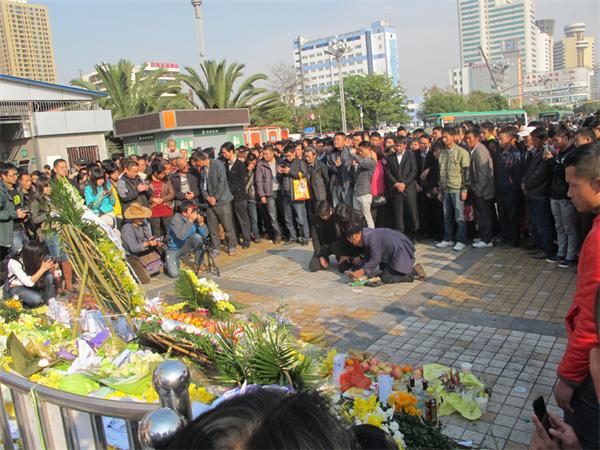 |
|
Relatives of victims are overcome with emotion at a wreath laying ceremony on March 7, 2014, at the train station in Kunming, Southwest China's Yunnan province, where 29 people were killed in a terrorist attack on March 1. [Photo by Xue Dan/China Daily] |
Many have wondered why group after group of ethnic Uygurs have been found illegally entering Thailand and Vietnam.
Now we have the answer.
Contrary to our Western colleagues' portrayals, they were not innocent, helpless members of an ethnic minority fleeing "suppression" at home in pursuit of "freedom".
They are religious extremists headed to the forefronts of Islamic Jihad, and devotees of the Islamic State group.
Ad hoc police operations since May have unveiled a people-smuggling corridor across the country's southwestern border, through which militants from the Xinjiang Uygur autonomous region have been transferred to the frontlines of Islamic jihad in Syria, Iraq, Pakistan and Afghanistan via Southeast Asian countries.
A number of criminal rings have been busted, revealing an intricate underground network sprawling across national boundaries. In November in Shanghai, 10 Turks were arrested for allegedly organizing Chinese nationals to illegally cross national borders. They were caught while trying to smuggle nine ethnic Uygurs, including one wanted terrorist, from Xinjiang out of the country on fake Turkish passports.
The Turkish authorities' shilly-shallying over the East-Turkistan Movement has made their country a favored stopover for Uygur militants from Xinjiang on their way to terrorist camps in other countries. The involvement of overseas elements along the pathway of terror raises an imperative task for our diplomatic and law-enforcement authorities to seek closer collaboration with their foreign counterparts.